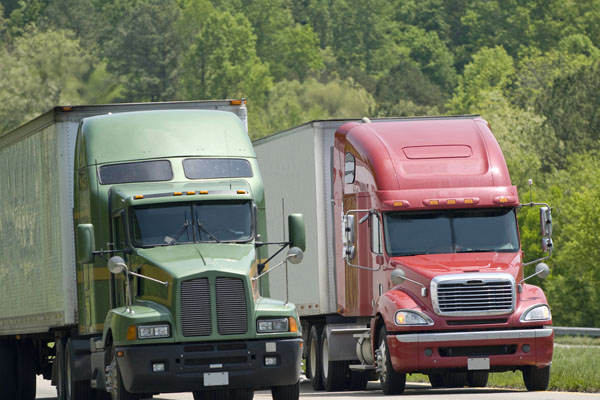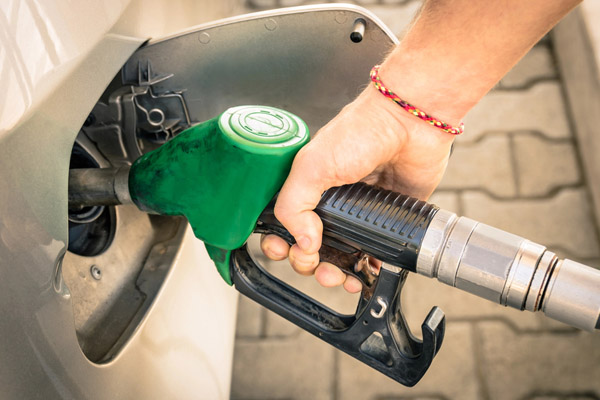Distinguishing Between On-Road and Off-Road Diesel: Exploring the Variances

Diesel fuel, known for its versatility, is extensively used in numerous applications. Its exceptional compression properties enable it to power internal combustion engines efficiently through ignition without a spark. Originating from diverse sources such as petroleum and biomass, diesel’s multifaceted nature is evident.
To maintain quality and promote environmental sustainability, various regions have implemented standards for diesel fuel. These standards not only uphold quality but also distinguish between on-road vs off-road diesel types.
Understanding this distinction is crucial for proper utilization and adherence to legal regulations. This article delves into the nuances of on-road versus off-road diesel, exploring their similarities and key differences.
Dive into the Distinctions: On-Road Vs Off-Road Diesel
Contents
Continue reading to learn the distinctions between these two diesel variants.
Exploring On-Road Diesel

True to its designation, on-road diesel is formulated for vehicles operating on public thoroughfares. Primarily utilized in the transportation sector, this fuel is a familiar sight at gas stations across the country, presenting as a clear liquid. Often referred to as ‘green diesel,’ this terminology doesn’t signify any added color. Instead, it underscores the renewable and environmentally conscious attributes of the fuel.
Motorists can judge the age and condition of on-road diesel by its appearance. Bright and clear diesel signifies freshness and good quality. Old on-road diesel often leads to reduced performance and additional problems. Select suppliers renowned for consistently providing high-quality diesel to ensure optimal vehicle functioning.
Off-Road Diesel Explained
Off-road diesel is primarily utilized in agricultural and industrial sectors, powering equipment in farms, factories, and construction sites. It’s essential for stationary machines and vehicles that operate solely within these private areas, not on public roads.
Beyond industrial use, it’s also employed in residential heating during winter. Its usage and taxation are governed by specific federal and state laws. Refineries add a red dye to distinguish it from on-road diesel, typically Solvent Red 26 and 164, which can be identified even in small concentrations.
Similarities of On-Road and Off-Road Diesel

Despite their distinct applications, on-road and off-road diesel share more similarities than differences. Chemically, they are identical, making them interchangeable in any diesel engine with equivalent results.
For instance, farms and factories could temporarily use on-road diesel in the event of an off-road diesel shortage. However, due to cost considerations, they usually revert to off-road diesel as soon as it’s available.
Cars can technically operate on off-road diesel, but this is generally discouraged due to regulatory restrictions. To avoid legal issues, motorists are advised to adhere to the law. Using red-dyed off-road diesel in on-road vehicles is monitored by authorities, and violators may face fines for such unauthorized usage.
Differences Between Off-Road and On-Road Diesel
Here are several differences between these two fuel types:
Taxation

A critical distinction between off-road and on-road diesel fuels lies in their taxation. On-road diesel incurs higher taxes, a policy designed to fund highway maintenance and infrastructure development. This tax reflects the principle that vehicles using public roads contribute to their deterioration. Therefore, through these taxes, motorists contribute to the sustainability and upkeep of road infrastructure.
While the federal tax on diesel is uniform across the United States, state-level taxes on diesel vary according to local laws. States may levy taxes based either on the volume of fuel purchased or on the total amount spent. In contrast, off-road diesel is exempt from these taxes due to its different applications.
Color
Given the identical chemical composition of on-road and off-road diesel, authorities utilize color differentiation for easy identification. This color coding allows enforcement officers to quickly determine the type of diesel in a tank with just a glance.
If there’s suspicion of irregularity, authorities can stop motorists and inspect their fuel tanks. They might take a small sample or examine the fuel filter to check the fuel’s color. On-road diesel should be clear, and using red off-road diesel in on-road vehicles can result in fines of up to $10,000. It’s essential to comply with fuel regulations to avoid such issues.
Cost

The primary allure of using red off-road diesel in cars is its lower cost, primarily due to the absence of the additional taxes levied on on-road diesel. This price disparity can be as much as 25 cents per gallon. The savings from using the cheaper off-road variant can seem significant for individuals who frequently refuel for long journeys.
However, the potential for hefty fines should be a strong deterrent against such practices. In the long run, any savings will likely be outweighed by the risks and costs of non-compliance with fuel regulations.
Use

Off-road diesel is designated by law for specific uses. In the construction sector, it’s essential for operating heavy machinery such as loaders, cranes, and excavators. In agriculture, it powers tractors, harvesters, and irrigation pumps, boosting productivity and aiding in revenue generation.
Certain states permit its use in vehicles exclusively on private property. Contrastingly, on-road diesel is mainly used in cars, SUVs, and small trucks that frequently travel on public highways, adhering to different legal and operational guidelines.
Distribution
On-road diesel is widely available, making it highly accessible for drivers. Motorists can easily refuel at numerous fuel stations situated along roads, where the convenience and ubiquitous availability help justify the higher cost. Additionally, in some states, long-haul truckers with a valid tax certificate can fill up on tax-exempt green diesel at designated pumping stations.
In contrast to on-road diesel, off-road diesel is typically sold in bulk by specialized fuel distributors, such as McAllister Energy. Farms and businesses needing off-road diesel often arrange for delivery directly to their site, with many maintaining onsite storage tanks for added convenience. While some rural gas stations might offer off-road diesel, these are relatively uncommon. Users should establish a purchase arrangement with a reputable fuel company for a reliable and consistent supply.
In Conclusion
Diesel fuel’s efficiency and cost-effectiveness make it a preferred choice for various applications. To streamline taxation and usage, governments categorize diesel into two types. On-road diesel, used by vehicles on public roads, incurs higher taxes and is readily available at fuel stations.
Off-road diesel, cheaper and used for farm and construction equipment, is distinguished by a red dye added by refineries. This color distinction aids authorities in regulating its distribution and preventing unlawful use. For a reliable supply of off-road diesel, contacting a reputable local fuel company like McAllister Energy for delivery arrangements is recommended.
Call McAllister Energy For All Your Home Heating Needs
For all your HVAC and oil delivery needs, contact McAllister Energy. We have some of the most highly qualified and professionally certified technicians in Southern New Jersey. Each of our friendly techs can conduct all kinds of HVAC services, such as oil tank upgrades, boiler repair, ductless installations, furnace replacements, and more. We have various oil delivery plans and financing options. This way, you can customize your fuel deliveries to meet your needs. Our heating oil delivery and HVAC services are affordable and are done accurately and promptly at all times.
All of our services come with a guarantee. Our HVAC maintenance services improve your energy efficiency and home comfort while decreasing your HVAC costs. We can also assist you when you need to replace your heating and cooling system. We will help you find the best make and model for your home without sacrificing your budget. Our experts have the skills, training, and experience to ensure that all your home comfort needs are met. Book an appointment with us today. Call McAllister Energy for a free, in-home estimate.
You can click here to contact us now or call us at (856) 665-4545 to find out more! Click the link to view our service area.

Related Articles: